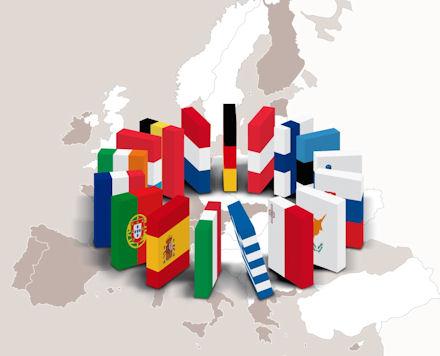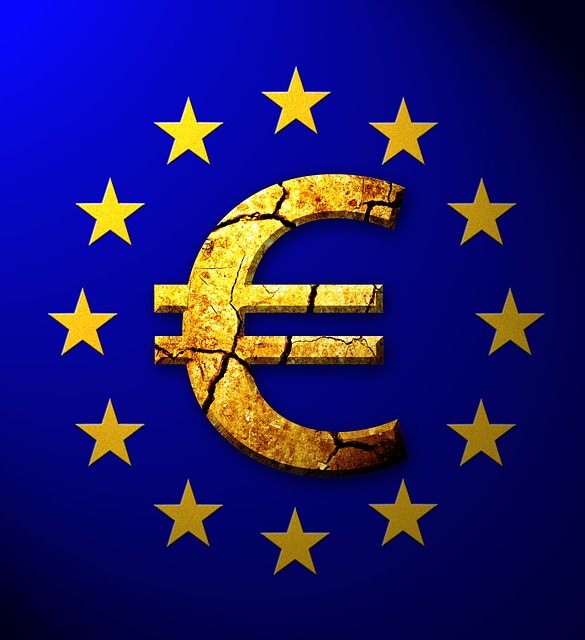Europe Is Much More Than the Euro
For the last few months, it has been nearly impossible to live in Europe without getting tired of the term “Grexit”. “Grexit” has become a metaphor to describe the longstanding disagreement between Greece and the European Union over how Greece should best manage its economic policy. In fact, the term was first coined by economist Ebrahim Rahbari in 2011 to describe the notion that Greece will eventually reach an impasse with European leaders and may decide to exit the Eurozone entirely. However, to reduce this complex crisis--which is currently shaking up the whole Union and not just Greece--to such a basic question would be far too simple.

Countless European Union institutions--the European Council, the European Central Bank, the European Commission, and the European Parliament--and even the International Monetary Fund have been through a very long and intricate process of negotiating with successive Greek governments to find some kind of “European” solution to Greece’s endemic budget crisis. Greece’s troubles with the Euro can actually be traced back to 2001 when many European observers felt that Greece manipulated some of the relevant financial data that predicated its switch from the drachma. Since that time, Europeans have stood divided on Greece’s role in the Eurozone.
Basically, public opinion over here is divided into three camps: those who feel that a bailout for Greece is a question of European social coherence and moral solidarity, those who believe that European taxpayers should not be liable for irresponsible Greek policies, and finally those who are trying to find a middle ground. "Grexit" has become the buzzword for what has quickly turned into an ideological debate, revitalizing old left-right stereotypes. The yellow press especially, such as the right-wing German tabloid “Bild,” has not been able to restrain itself, not even for one day, from slanderous headlines such as “No More Euro – Billions for the Greedy Greek,” thus instigating public anger and frustration with the Greek situation.
Confronted with contradicting headlines, Europeans are increasingly confused. And many have started to doubt the project of European integration all together, thus encouraging anti-European sentiment. Ten years ago, the EU was hardly covered by our media. Apart from some public attention right before elections to the European Parliament or when confronted with a rising tide of EU regulations, people in Europe were taking the EU for granted. However, the beginning of the financial crisis in 2008 has resulted in a boost of EU media coverage. Suddenly, citizens who never really cared much for EU issues find themselves in huge sea of controversy about all kinds of EU-related topics, including the "Grexit,” but none of which reinforce pro-European attitudes. The result: "Eurosceptics," or right-wing opponents, are now occupying about one-third of the seats in the European Parliament. This is bad news for Europe.

Is there any happy ending to the “Grexit“ drama in sight? European heads of government have just voted on another short-term bailout fund for Greece, which was accepted by both the German and the Greek Parliaments. So far, so good. But there has been huge political cost. Ironically, the chief antagonists in this European drama, Greek Prime Minister Alexis Tsipras and German Chancellor Angela Merkel, both lost significant support in their own parties and had to rely on opposition votes. Also, both are being subjected to public criticism and even massive digital outrage for having accepted a compromise. The "good cop, bad cop game" is far from over. And seeing that even with the recent bailout package some of the underlying structural problems of the Greek economy remain unsolved, there's bound to be more trouble ahead.
People can definitely be of different opinions about the situation, about the responsibility of Greek politicians, and about whether or not a “Grexit” would be an adequate solution to the European financial crisis and to improve the competitiveness of the Greek economy. But given the fact that the European Union, including the currency union, is far more than just a joint economic venture, it is discouraging to see that a significant portion of our media has been concentrating only on whether Greece should stay in the Eurozone, neglecting the larger issue of European integration.
After centuries of bloody wars and conflicts throughout the Old Continent, the founding fathers of the European Community (later EU) aimed at the creation of a union of peace, cooperation, common values, and social justice, something unprecedented in European history. As the awarding of the Nobel Peace Prize to the EU demonstrates, this project has been hugely successful. It would be a disaster if this success story was threatened by some controversy over the fiscal policies of one member state.
Ultimately, Europe is much more than the Euro.
About the author
 Filipe Ataíde-Lampe is majoring in Political and Social Studies as well as Economics at the University of Würzburg, Germany. Filipe was born in Lisbon, Portugal and grew up in Berlin, Germany. Having both Portuguese and German nationality, he not only feels committed to the beautiful beaches of Portugal but also to anything concerning international affairs. His latest trip to Georgetown University in April 2015 inspired him to contribute to this project.
Filipe Ataíde-Lampe is majoring in Political and Social Studies as well as Economics at the University of Würzburg, Germany. Filipe was born in Lisbon, Portugal and grew up in Berlin, Germany. Having both Portuguese and German nationality, he not only feels committed to the beautiful beaches of Portugal but also to anything concerning international affairs. His latest trip to Georgetown University in April 2015 inspired him to contribute to this project.
